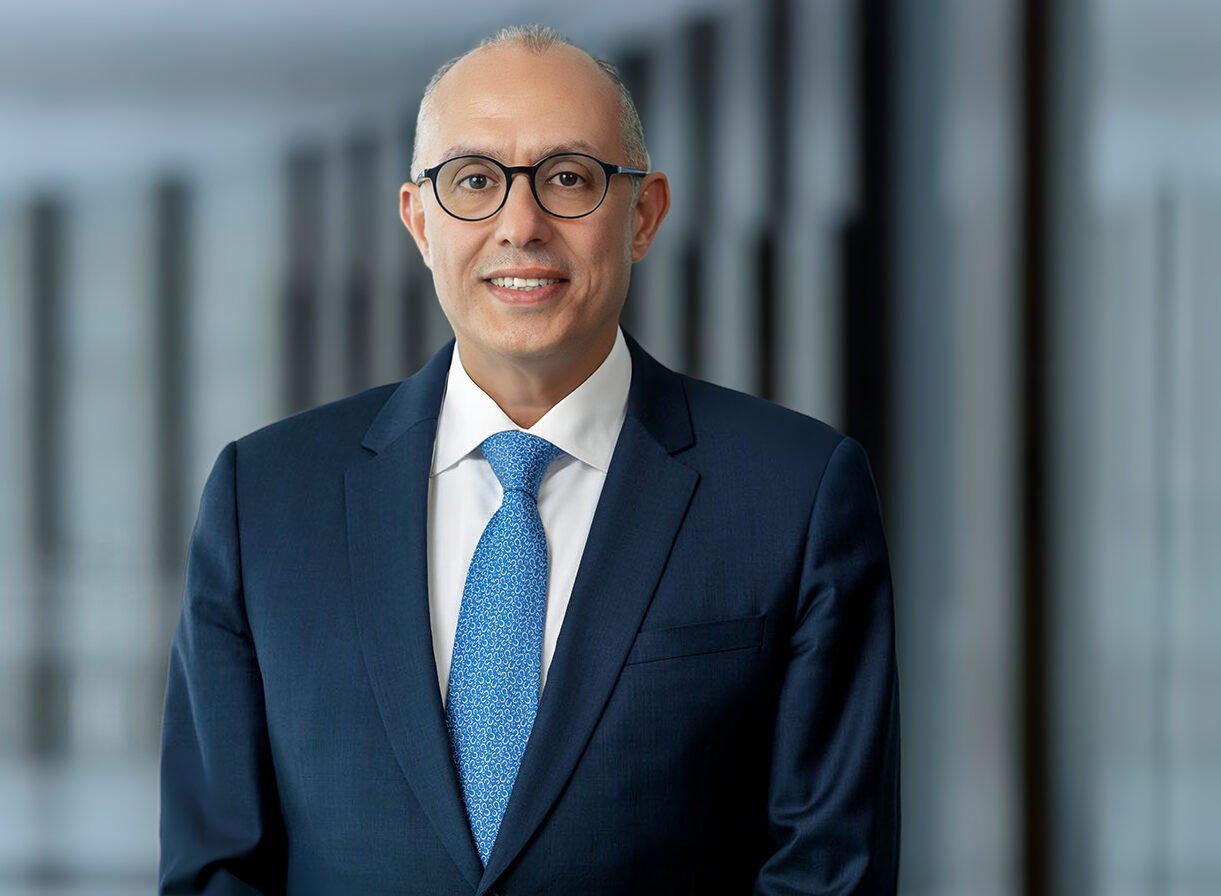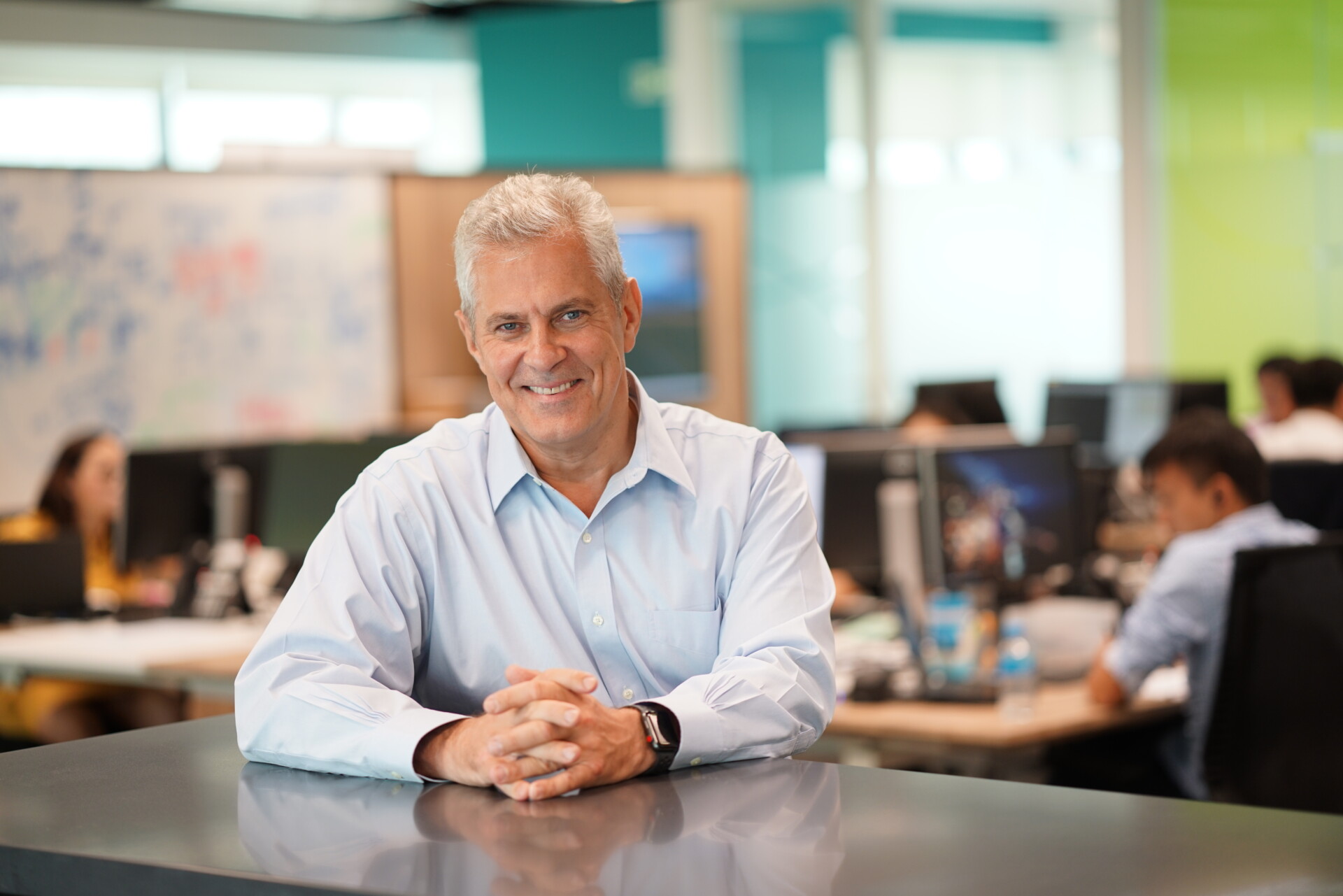Picture yourself perusing a major international auto show, surrounded by the latest and greatest gizmos and gadgetry on four wheels. From leading-edge self-driving wizardry and revolutionary fuel cell technologies to groundbreaking safety features—like retina scanning software that monitors a driver for drowsiness—the automotive industry continues to pioneer advancements that will no doubt change the way we define mobility in the decades ahead.
However, you would be remiss to overlook where perhaps the greatest advancements in automotive technology are currently being developed: vehicle tires.
While not as alluring as the sculpted body lines of the latest hypercar, tires are literally where rubber meets the road and cannot be understated as one of the greatest factors in vehicle performance, safety, and mileage range—as well as a dozen other variables that contribute to overall driver satisfaction and comfort.
At the front of the pack in terms of tire innovation is Michelin, the 135-year-old industry stalwart based in Clermont-Ferrand, France. In 2023, the company posted a total net revenue of $30 billion (USD), made possible through the effort of 132,000 global employees across several subsidiaries and associated brands.
Founded in 1881, innovation is truly baked into the company’s DNA. In 1891, Michelin developed the world’s first detachable bicycle tire with an innertube. In 1933, the company invented the first dedicated snow tire and, in 1934, introduced the precursor to run-flat technology. Perhaps most consequentially, Michelin unveiled the first radial tire in 1946, which not only improved overall safety and increased the lifespan of a tire four-fold, but remains the standard design for essentially all automotive tires produced globally.
Today, Michelin is leading the way in terms of innovation, especially in the realms of construction, connectivity, and customer experience. The Connected Technologies moniker encapsulates a set of tire technologies developed by the company that capture and communicate information about the tire—from pressure, wear, temperature, and more—directly to customers to improve their safety and mobility experience, but also to reduce the company’s environmental impact via enhanced production practices and improved cost control.
With integrated sensors built into the tire—and algorithms that analyze data in real-time from both the tires and the vehicle—the company’s Connected Technologies can help drivers optimize their vehicle suspension settings, understand when their tires should be rotated, and estimate battery life for electric vehicles.
Understandably, for a firm with such a large appetite for innovation, a hand must be firmly affixed to the wheel, steering that progress forward, especially as the auto industry races to meet consumer demand for inventive features and sustainable technologies. For Michelin, that person is Alexis Garcin, CEO and President of Michelin North America, Inc.
Based in Greenville, South Carolina, Mr. Garcin oversees a vast empire boasting over $9.1 billion (USD) in sales. No longer simply a tire manufacturer, Michelin has fashioned itself into a mobility company that strives to catalyze Motion for Life, a philosophy that encapsulates the company’s approach to developing solutions specifically adapted to the needs of an evolving industry and customer base.
Although Mr. Garcin certainly has his eye affixed on the company’s product and services portfolio—where innovation is a prerequisite for realizing his critical and essential results—he is quick to credit the 23,000 associates he leads across the U.S. and Canada as the engine driving the company to achieve its ambitious sustainability and market share goals for 2024 and beyond.
“Understanding that our people make our results possible is the theme of our strategy in North America, and it is a very strong conviction of all of us,” says Alexis Garcin. “Michelin employees challenge norms to give people better, safer, more efficient products and services. Our people will always come first in what we do and I believe that they have been the key to maintaining our strong corporate culture.”
The Road to Leadership
Mr. Garcin’s journey with Michelin began in 2002 as the sales director of the car dealer channel in France, marking the inception of a career steeped in automotive expertise. Prior to his tenure, Garcin honed his leadership acumen at Bosch Group, where he held pivotal roles, including sales director of the Western Europe power tool division.
Once at Michelin, Mr. Garcin ascended through the ranks within the passenger car division, assuming sales director roles across European markets before assuming the mantle of managing director at Euromaster, Michelin Group’s retail network.
In 2011, Mr. Garcin transitioned to a global role, steering Michelin’s strategic marketing endeavors for their truck and bus division until 2017, when he was tapped to lead the company’s long-distance and regional transportation business line. In June 2019, Alexis Garcin was named CEO and chair of the company’s North American operating group, encompassing 34 plants in the U.S. and Canada, which produces a full suite of products for the company’s passenger, commercial, and aerospace customers.
Guided by purpose, humility, and authenticity, Mr. Garcin champions the ethos of prioritizing people and driving progress by challenging norms, regularly engaging with a diverse array of stakeholders for inspiration.
“We care about giving people a better way forward and are dedicated to developing innovative mobility solutions that really surpass customer expectations,” says Alexis Garcin. “For me, this reinforces the concept of humility because it takes the entire organization—from designers and engineers to the product line—to consistently achieve the highest levels of quality. This is also how we build trust with our customers and is why Michelin is the most awarded tire brand in the U.S. today.”
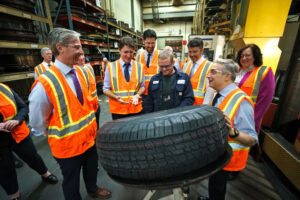
A critical aspect of Mr. Garcin’s leadership agenda is his commitment to Michelin’s diversity pledge. According to the trade journal Rubber News, Michelin has set its sights on exceeding the industry standard for workforce diversity, with the company aiming to achieve the benchmark of women holding 35 percent of management roles. Ultimately, Michelin Group—and by extension, Michelin North America—aims to set the industry standard for workforce diversity by 2030.
To get a sense of progress to date, look no further than the company’s 2022 financial report, which highlights Michelin’s ongoing commitment to global diversity initiatives. The report revealed that nearly 30% of managerial positions within the company are held by women, which according to CSR Hub—which monitors environmental, social, and corporate governance (ESG) ratings of over 35,000 organizations—helps elevate Michelin into the 92nd percentile of companies measured.
Furthermore, the company has repeatedly found itself the recipient of accolades from publications and organizations championing women and minority professionals. That list includes Woman Engineer Magazine and Minority Engineer Magazine, both of which named the company a “Top 50 Employer” in 2022. That same year, the Hispanic Network named Michelin a “Best of the Best” for their commitment to diversity, equity, and inclusion.
For Mr. Garcin, a personal commitment to diversity and inclusion—as well as his mission and purpose of putting people first—naturally dovetails with Michelin’s five core values, rooted in the principle of respect: Respect for Customers; Respect for People; Respect for Shareholders; Respect for the Environment; Respect for Facts.
“The world is changing at higher speeds every day, and being part of an organization that is representative of the consumers and the society we serve resonates deeply with our people and creates an environment where they feel they truly belong,” says Mr. Garcin. “Our values aren’t just posters on the wall; they are foundational and fuel a sense of belonging across the company.”
Moreover, Mr. Garcin believes the company’s DE&I focus will be critical for maintaining a competitive edge, particularly in terms of sustained talent acquisition and retention. According to Ernst & Young’s Belonging Barometer, over 60% of Generation Z workers—those born during the late 1990s and early 2000s—would choose an employer that prioritizes DE&I over one that does not. The business case is clear when juxtaposed with projections from the World Economic Forum, noting that Gen Z will comprise 30% of the labor force by 2025.
“On a personal note,” says Mr. Garcin, “what really energizes me and fills me with pride is the way that everyone comes together to make Michelin such a great place to work. Our employees rightfully have high expectations of our mission as an employer, and we work hard to create and preserve an environment where people feel valued, can achieve their best, and reach their true potential. This is truly at the heart of everything we do.”
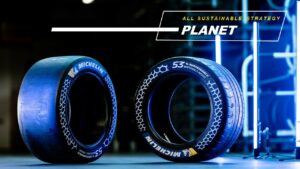
His Critical & Essential Results
As Mr. Garcin navigates how to create a powerfully inclusive organization to fuel Michelin’s long-term growth, he also understands that he cannot take his foot off the pedal in terms of leading a very ambitious set of sustainability goals outlined in the company’s “All Sustainable” strategy, unveiled in 2021.
By 2050, Michelin’s goal is to produce 100% sustainable tires, with a target of 40% renewable by 2030. At first pass, one might be forgiven for assuming this can be easily achieved by simply innovating a few production and procurement processes. However, given that each tire is comprised of over 200 different ingredients and compounds—from rubber and silica to textiles and metals—the level of complexity skyrockets, especially when reformatting an entire global supply chain to be 100% sustainable.
“We are in the midst of the greatest transformation in the automotive industry,” says Mr. Garcin. “When people ask me why these goals are critical and essential to our long-term success, I tell them that at Michelin, we believe mobility cannot be achieved at the expense of people or the planet,” says Alexis Garcin. “We approach innovation at Michelin from the standpoint that it must be good for nature just as it is for society, which complements our strategy and purpose of providing people with a better way forward.”
To achieve these critical milestones, Michelin has partnered with forward-thinking companies and startups in various industries that promote the reuse of raw materials and enhanced sustainability. In collaboration with Axens and IFP Energies Nouvelles, Michelin is part of the BioButterfly project, aiming to produce bio-sourced butadiene, which is used to produce synthetic rubber products. By utilizing biomass from diverse sources like wood, rice husks, and plant waste, Michelin aims to incorporate 4.2 million tons of wood chips annually into its tires.
Additionally, a partnership with Canada’s Pyrowave focuses on recycling styrene—crucial for manufacturing polystyrene and synthetic rubber—from plastic packaging. The collaboration could potentially recycle tens of thousands of tons of polystyrene waste annually.
Other partnerships include French startup Carbios, which developed an enzymatic process to deconstruct PET plastic waste, which could recycle up to four billion plastic bottles into tire manufacturing annually, and Swedish company Enviro, set to construct the world’s first tire recycling plant, promoting circularity in rubber-based production. Lastly, Michelin’s involvement in the European BlackCycle consortium underscores its commitment to the circular economy by developing processes for producing new tires from end-of-life tires, furthering sustainability efforts within the industry.
Yet, in addition to Michelin’s effort to lead in terms of sustainability, it also must contend with how to stay ahead of the market in an extremely competitive sector, especially as demand for electric vehicles—and smart tires—has massive impacts on the company’s global strategy. In tandem with reducing the company’s environmental footprint, Mr. Garcin believes that the future of sustainable mobility will include electrification, hydrogen connectivity, and embedded technologies that cater to safety and the overall driving experience. Fortunately, the company anticipated the road ahead over 30 years ago and can draw on a wealth of research and development expertise to stay ahead of the market.
“As electrification and hybridization within the industry continues to trend upward, we are very proud that eight out of 10 electric vehicle manufacturers trust and depend on Michelin tires in the U.S.,” says Alexis Garcin. “In 1992, we began working on how to reduce vehicle gas consumption by improving tire rolling resistance. As it turns out, this same approach can be adapted when producing products for electric vehicles (EVs), which often have higher torque than those powered by combustion engines. This leads to higher friction, sensitivity, and rolling resistance, thereby impacting overall range. This is why tires are the most critical range-extending feature on an EV today.”
The advancements that Mr. Garcin and his team are developing also apply to commercial and fleet vehicles—including those that will depend on hydrogen fuel cell technologies—which have higher payload specifications and, thus, unique tire requirements.
“Michelin understands the concerns of long-distance transportation companies when integrating EV trucks and buses into their fleet, especially in terms of range and charging speed,” says Alexis Garcin. “Hydrogen-powered fuel-cell electric vehicles (FCEVs) offer an alternative and have shown they can meet demand for long-distance transportation. From a strategic standpoint, we’ve dedicated research and development to better understand how we can meet the needs of FCEVs in fleet transportation.”
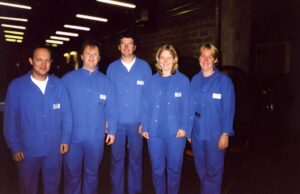
The caveat, says Alexis Garcin, is by what means the hydrogen is produced and whether it aligns with Michelin’s “All Sustainable” commitment.
“Hydrogen can be a very clean way to create electricity, yet it must be green hydrogen, which is produced via water electrolysis, thereby using renewable electricity,” says Mr. Garcin. “Green hydrogen production is far superior from a greenhouse gas emissions standpoint versus traditional or grey hydrogen, which is captured from fossil fuels.”
According to the Union of Concerned Scientists, hydrogen offers a tremendous upside in terms of range—but only if the emergent technology is closely monitored by regulators who can ensure hydrogen fuel leaks are minimized since even a small amount of leakage could significantly compromise its effectiveness as a clean fuel.
“There is a significant range upside compared to current battery-electric tractor trucks from legacy manufacturers, which can take around 90 minutes to charge enough to travel 200 miles,” says the group. “However, some battery-electric models are beginning to catch up. Fleets testing the Tesla Semi have reported the vehicles achieve nearly 500 miles of range in the real world, and Tesla claims they can regain up to 70 percent of charge in 30 minutes using their megacharger.”
All told Mr. Garcin’s ability to keep the company on track toward achieving such ambitious goals is already coming to fruition.
“To give some perspective, we unveiled two new road-ready tires in October 2022, one for passenger cars and the other for buses. The passenger car tire incorporates 45% sustainable materials, and the bus tire features 58%. I believe this demonstrates not only that Michelin is well on its way to achieving our goals but also the critical role that innovation plays in our commitment to sustainability.”
Full Speed Ahead
While Michelin continues charging forward to reach its sustainability goals, Alexis Garcin understands that the road ahead will undeniably be faced with unforeseen bumps and potholes—some of which the company presently contends with, particularly in terms of speed to market.
“We must ensure that we can meet current and projected demand, while at the same time, we are an industrial business, and it takes an investment of time to successfully adapt our manufacturing processes to align with this evolution,” he says.
Yet, for Alexis Garcin, maintaining this balance also presents an accelerated opportunity for the entire organization to understand how evolving customer preferences will impact every aspect of Michelin’s business. By being able to anticipate where customer tastes are evolving, teams are better situated to adapt and adjust to market demand.
“This balance between accelerating the business forward and coping with market evolution is critically important, and we believe it creates many more opportunities than challenges,” he says.
However, beyond the opportunity presented by the market, Alexis Garcin is energized to lead the alignment between people, planet, and profit—cemented within a sustainable framework and supported by the strategic capabilities of Michelin’s workforce.
“For me, this alignment means that our employees, our customers, and our communities are kept at the heart of our strategy—and they demand that from us. That truly excites me.”
Alexis Garcin serves as the CEO and President of Michelin North America, Inc., a role he assumed in June 2019. In this capacity, he oversees all operations of Michelin in North America, which includes managing a workforce of approximately 23,000 employees and driving sales exceeding $9.1B (USD) across Canada and the United States. Prior to his tenure at Michelin, Garcin held various positions at the BOSCH Group, including sales director for Western Europe of the powertool division. He is a graduate of the University Lumière in Lyon, France, where he earned a degree in Economic Sciences, and Saint-Etienne Business School in France, where he obtained a master’s degree in Business and Management. He currently is the chairman of the board of the United States Tire Manufacturers Association (USTMA).
